Acclaimed Music Director Shantanu Moitra, the music maker of Bollywood Blockbusters such as Parineeta, Lage Raho Munnabhai, 3 Idiots, PK and now, Pink, along with award-winning wildlife photographer Dhritiman Mukherjee, is on a journey of his lifetime. They both are going to spend ‘100 Days In Himalayas’ – A century of days seeing and experiencing the glory of God and what life feels like at 17,000 ft.
I spoke to Shantanu and attempted to figure out what really is going on in his mind after having completed 50 days of a journey as exhilarating and exciting as this one…
GW: What inspired you to go on a journey as interesting and challenging as this one?
Shantanu Moitra: The underlying thought of taking up this journey was based on a belief that by nature, we human beings don’t care about things that we cannot see; it does not hold any consequence to us anymore. For instance, the North-East region. They look different, they eat different, they wear different. So, pretty much, subconsciously they are not a part of the country anymore, ramifications of which we are still dealing with.
I think this trip is really an attempt of mine to know my country better and especially the Himalayas, which is our crowning glory, and what life is like at 15,000 ft. What are people there like? Do they go to school? Do they feel happy when Sachin Tendulkar scores a century? What do they feel when shelling happens from across the border? Who are they? It was about people for me more than anything else.

GW: Have you been to the Himalayas before this?
Shantanu Moitra: Many times. All my life I have been visiting in the Himalayas. This is only the first time I am going across the length and breadth of the Himalayas and properly documenting everything above 17,000 ft. The Himalayas is a part of us but there is never an attempt to discover it. We go out for picnics and treks but never indulge into a discovery. The thought that really came to me was of isolation. Dhritiman and I knew that we will be operating at 17,000 ft. and above and there won’t be too much of vegetation, not too many people. It would be a story of survival and that’s why we decided to start in peak winters. We would not have ever known how the high-altitude shepherds live their life in winters if we didn’t decide to go there.

GW: How does it help to have a companion as knowledgeable as Dhritiman Mukherjee? Has the Bong connection been helpful? 😀
Shantanu Moitra: Dhritiman was an unknown entity for me. I have just known his work but didn’t know him. That’s the exact reason why I chose him. I didn’t want to go with somebody I knew. I wanted to go with a complete stranger and it is that discovery which is amazing. From his perspective, he wanted to know how the perspective of a music composer and also how a photographer and a composer both look at the same thing together. It is that journey, that preparation, that mindset which is fascinating. It made sense to go with Dhritiman because he’s such a wild guy! I would teach him etiquette inside the room – how to hold a spoon, how to eat, and he would teach me how to smell flowers, how to listen to bird calls, how to cross rivers, how to walk on snow, it was really a symbiotic case.

GW: Is travelling in the hills tougher than composing music?
Shantanu Moitra: Both are journeys. They are two different things altogether. What is tougher? Well, it is when you are composing music, it is your creation; good or bad, it is yours. The tough part in travelling is that you are affected by the journey you have no control over. When you see a child walking there who is traveling for one and a half days to fetch water, you have no control over it. I can change a discordant note in my music composition in 30 seconds but I can’t change a discordant note in life.
GW: So, was there a moment in the Himalayas you wanted to change something?
Shantanu Moitra: Yes, I wanted to change the way I perceive things and my sense of judgment. I look at something and am quick to come to a conclusion. I wanted to change that because it is based on the knowledge we have in general. My knowledge is inadequate. Imagine how dangerous it is to have formed an opinion on an inadequate bank of knowledge.
GW: Where do travel and music meet?
Shantanu Moitra: They never meet. They always go side by side. They are two completely different things. But one without the other is a journey which is extremely lonely. In fact, the part of the brain that kicks in when you are composing music and the part that kicks in when you are travelling are two different ones. But one complements the other. Travel and music are complementary to each other.
GW: You were a Delhiite for quite some time. Studied in Springdales. What do you think the mountains add on to one’s personality that a metropolitan city will never…
Shantanu Moitra: In cities, we are a sucker for controls and in today’s times, more so than ever. We don’t like surprises. There’s a classic corporate statement in a Monday morning meeting – “I don’t like surprises!” But mountains are only about surprises. You are not in control of anything. No app in the world can tell you what the hell is going to happen in next ten minutes. That adaptation makes you special, makes you breathe and live again.
GW: But does it feel good or bad to be not in control…
Shantanu Moitra: If it makes you think that because you are in control you are on top of things then that’s a bad thing. Just because four of your assistants have listened to your command and done what you had asked for and at the end of the day you are going back home satisfied, then you are mistaken. Because what could have been better is one out of four could turn around and say, “Hey, I don’t agree with you.” Who will you be in that situation? In the mountains, you are constantly dealing with situations where whatever you are thinking in next five minutes somebody is going to say it and they might as well not agree with you and there’s no option but to listen to it.
I know for sure that there are people who, for the first two hours, are completely wrecked when they go to places where there’s no mobile network. It is an out-of-control feeling. But as time passes, they start to understand they are getting used to it. And in the last two hours of the journey, the same people dread to realize that they have to switch on the phones and reconnect with their regular worldly things. So, that is what the mountains do to you.

GW: What has been your best moment so far…
Shantanu Moitra: Best moment for me has been with the Himalayan people.
In Nubra valley, I was in a homestay. It was minus 20 degrees Celsius. There was a family with around an eight-year-old kid named Ingley. So, I decided we should entertain this boy as we were there for only one night or maybe impart some education to him. It was my city smugness, really (quips). I asked Dhritiman to switch on his laptop and show him some of his wildlife photographs. The first image he showed was of a shark. I started off, “So Ingley, do you know what that is? It’s a shark, okay. And can you see those big teeth? If you go near the shark, it will bite you, it’s the one of the deadliest things in the world.” This kid turned around and said, “That is a bull shark. It operates at 12-1500 ft. in tropical waters. In the last five years, there have been only 50 incidents when these have attacked humans but every year, humans kill more than 50 lakh sharks. Who is more dangerous?” I was so embarrassed that I asked Dhriti to change the picture.
So, the next picture was that of an eagle and I was more cautious now. Not up for any more surprises, I quickly asked him, “Do you know what that is?” “Eagle,” he answered and what followed was a counter question, “Do you know what is special about this eagle?” He asked us to enlarge the picture and showed us a mark on the eagle’s forehead and said, “This mark means the bird is endemic to Ladakh.” And by now I was startled. I had to ask his father how does know so much despite not having gone to school. His father shared an amazing anecdote. He told us that right from the day he was born, the only people he has seen in their house were BBC and National Geographic photographers and he has only heard these kind of conversations. Hence, he had such in-depth knowledge.
This incident completely turned around the idea of knowledge that we have. We are sending our kids to city schools for self-satisfaction but don’t really know if kids are really getting exposed to all kinds of knowledge. The Himalayas for me was this.

GW: What was that moment you were really scared or homesick and wanted to give up on the journey?
Shantanu Moitra: It was during the Uttarakhand trek when we were doing the new route after the landslide that had shook Himachal two years back. Nobody had ever gone on this route before us. It was two hours more to reach the camp site and I was already exhausted. It was a route where even if we stopped for 10 seconds we would start to slide down. That moment I thought this wasn’t a good idea.

GW: If given a chance, would you ever want to settle your life down in the Himalayas?
Shantanu Moitra: I have identified a good place in Lahaul already. Whenever I am writing or composing something, I go there for two months. We human beings are essentially nomads. I don’t know where this idea of being rooted to one place has come from.
GW: Do the Himalayas inspire you?
Shantanu Moitra: Oh, absolutely! I will be very honest with you. It’s the joy of not thinking anything that the Himalayas brings. There’s no cause and effect relationship there. It’s a beautiful place. There’s cool air, good people, I go for a walk and that’s it. What else does one want from life!
GW: What makes a journey into the great Himalayas an inevitable one?
Shantanu Moitra: I will ask people not to go there. They will ruin it! I guess they should just pollute where they are. Please don’t go to the Himalayas. Every place we have gone, we have only ruined it. I am actually happy that people don’t go there.
We have not even started to understand this life. Probably there are only 5% of world’s population who understand the purpose of having taken birth on this earth. There’s only one planet we know that has this kind of chemical composition which supports life and on that, you are born and that too you’re hale and hearty. It’s an incredible probability! But unfortunately by the time you will die, you will probably only begin to understand the purpose of your journey. What the Himalayas as a journey does is that it opens up that purpose a little bit more. It makes you introspective so that you understand that there may be a larger truth out there than just taking care of yourself, your family, and your kids.
GW: But do the Himalayas give a purpose or do you have to have a purpose before you go there…
Shantanu Moitra: No! You just need to be away from the noise. We talk too loudly. We listen too loudly. Just go there and be quiet. So above 17,000 ft., you automatically start listening to yourself. And that’s why – the Himalayas! All you have to do is listen.





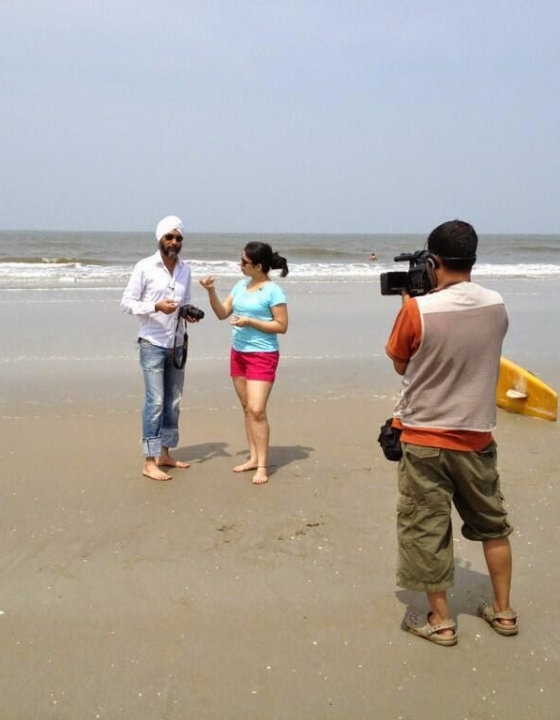
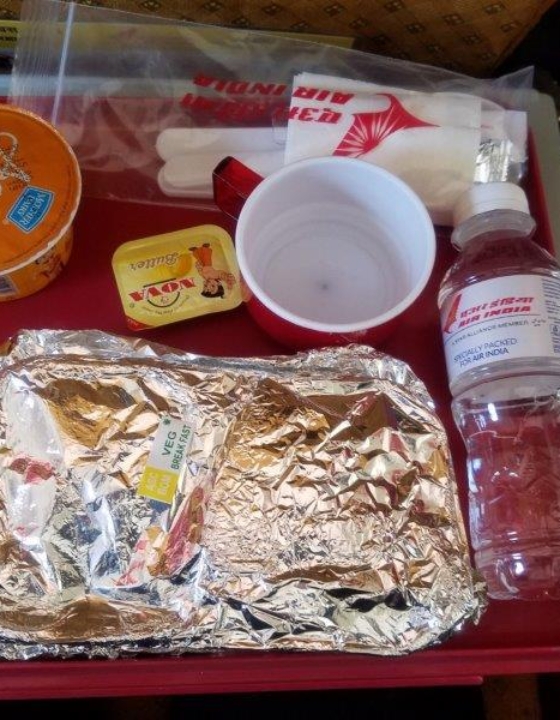

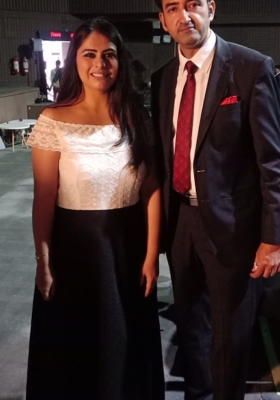
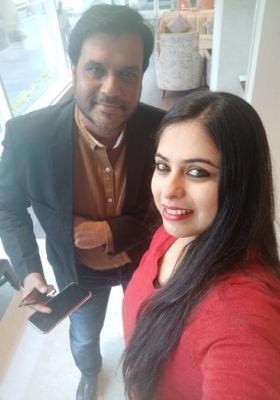


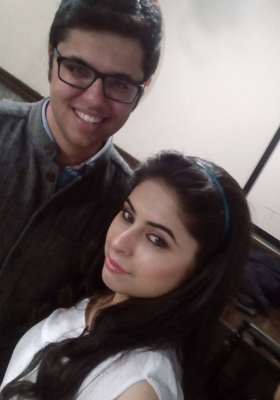




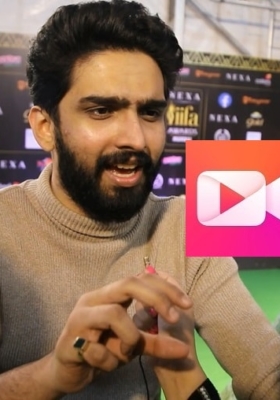
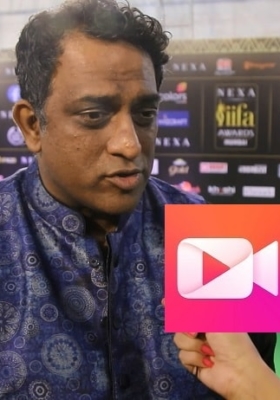


What do you think?